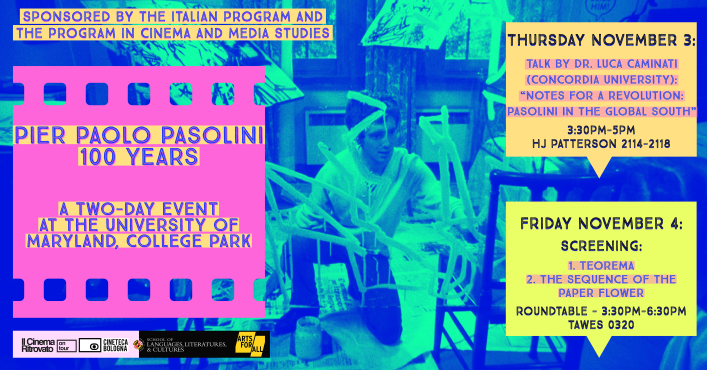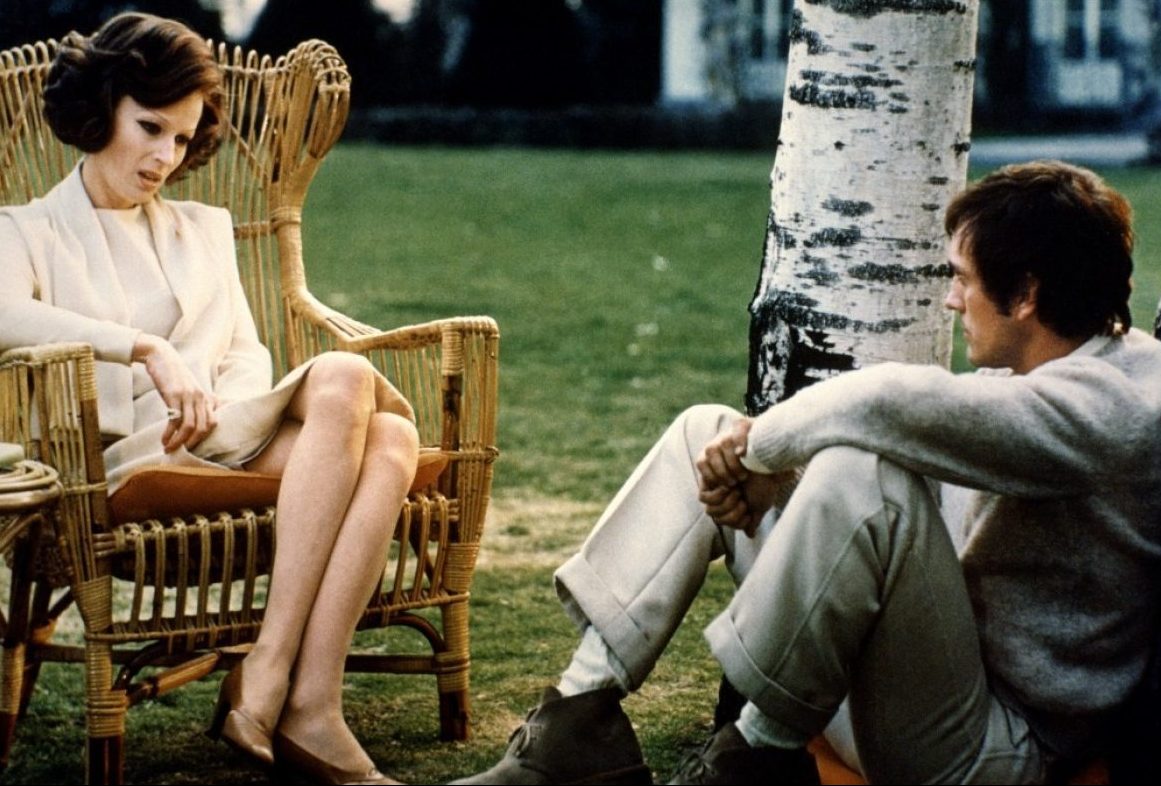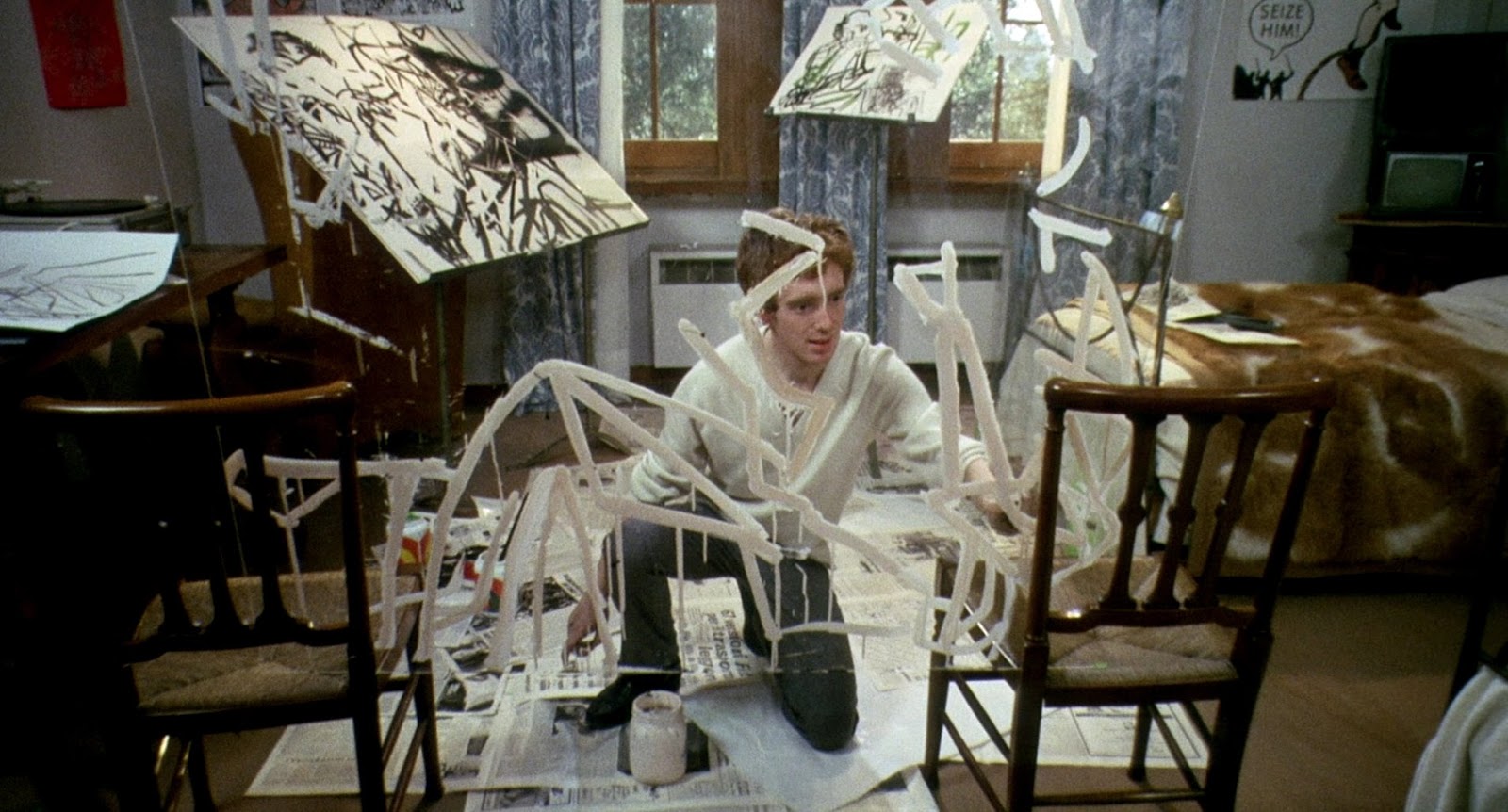Celebration of the Centennial of Pier Paolo Pasolini’s Birth
October 10, 2022

The Italian Program and the Program in Cinema and Media Studies at the University of Maryland are proud to present a two-day event to celebrate the centennial of Pier Paolo Pasolini’s birth
The Italian Program and the Program in Cinema and Media Studies at the University of Maryland are proud to present a two-day event to celebrate the centennial of Pier Paolo Pasolini’s birth on November 3rd and 4th. One of the most controversial and influential figures of the twentieth century, Pasolini was a multifaceted artist and an outspoken public intellectual. This two-day event will feature a distinguished guest, film scholar Luca Caminati (Concordia University). We will explore in depth Pasolini’s cinematic work with a talk and a masterclass by Caminati, and the screening of a selection of Pasolini’s films recently restored by the Cineteca di Bologna. The event is part of our ongoing collaboration with the Cinema Ritrovato festival.
All information about the two-day event can be found here.
DIRECTOR’S BIO
Pier Paolo Pasolini (Bologna, 1922- Ostia, 1975) is one of the major artistic and intellectual figures of the twentieth century. His work as a filmmaker, poet, novelist, playwright, journalist, and cultural critic attained national and international recognition, and continues to elicit debate and controversy. Pasolini attended the University of Bologna, where he studied art history and literature. His first two novels, Ragazzi di Vita (1955; “Hustlers”) and Una Vita Violenta (1959; “A Violent Life”) were realistic depictions of the poverty in Rome during the 1950s. His first film Accattone (1961), intensely influenced by Neorealism, heralded the arrival of a new voice in Italian cinema. His subsequent cinematic work--including Il Vangelo Secondo Matteo (1964; ), Teorema (1968), and Porcile (1969)--combined religious speculation with a radical critique of capitalist society and a daring exploration of sexuality. Openly gay and an avowed Marxist, Pasolini was also an outspoken public intellectual, relentlessly criticising petty bourgeois values and the rise of consumerism in cointemporary Italy. He was murdered in Ostia, at the outskirts of Rome, in circumstances that remain unclear to this day.



